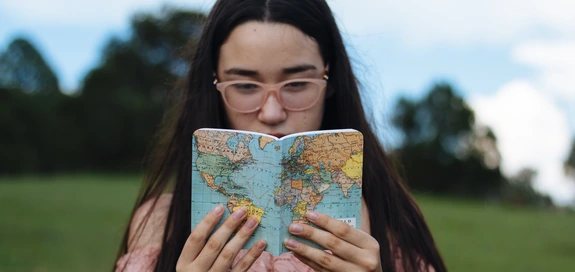
Minor in
Studies of Global Media
Thank you for your interest in the Studies of Global Media minor through the University of Arizona School of Journalism. At this time, the School of Journalism is not accepting new GLO applications through Spring 2025 at the earliest.
Please return to this page for further updates.
Want to make your mark in the world? A minor in Studies of Global Media can help.
About the Program
The minor in Studies of Global Media (GLO) prepares students to analyze, verify, study and communicate information about varying global issues in an effective, ethical and culturally aware manner. Courses examine the transformation of media systems in historical and contemporary contexts, with challenges such as digital inequity, surveillance, censorship, disinformation and misinformation. Students build analytical skills coupled with conceptual knowledge of real-time and emerging issues and methods of addressing them. Students will study with faculty who have conducted research and other work for news media or other organizations around the world.
The program’s broad selection of courses focuses on comparative media systems, practices, values and laws that influence political, cultural, social and economic institutions. Students critically evaluate relationships among media, the public, policy makers and other entities in rapidly evolving events and issues.
Our flexible curriculum allows students to study many forms of media and their influence on societies around the world through classes such as Media and the Environment; Disinformation and Information Security; Media, War and Peace; Media and Human Rights; and Social Movement Media in a Global Context.
Declare the Minor
There are no pre-requisites for the Studies of Global Media minor, but you need to fill out a Declare Major or Minor form.
Course Outline
GLO classes are online, but students on the main campus may take in-person JOUR and other courses as electives.
Complete ANY six courses (18 units, minimum) from the options below
Contact Us
For more information contact:
Kami Merrifield (Online)
kmerrifi@arizona.edu
Paloma Boykin (Main Campus)
boykin1@arizona.edu

